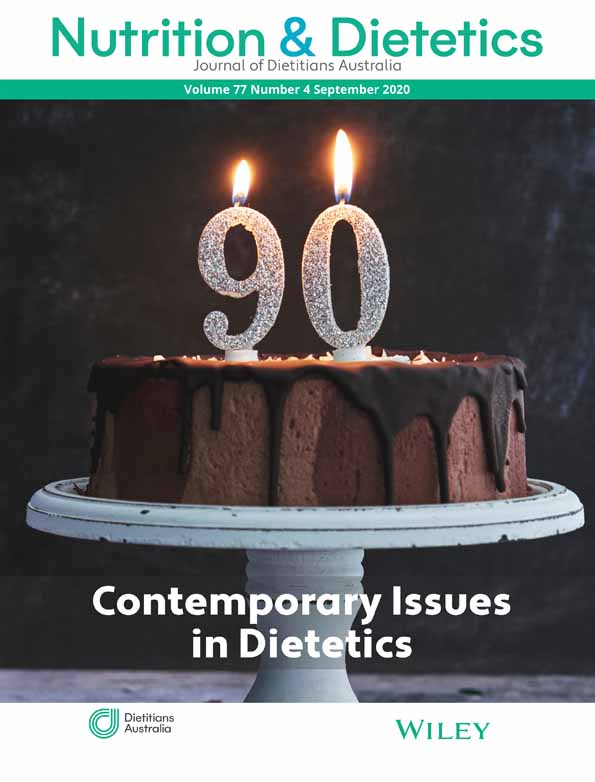Nutrition management for critically and acutely unwell hospitalised patients with coronavirus disease 2019 (COVID-19) in Australia and New Zealand
Reprinted from Australian Critical Care, L.S. Chapple et al. Nutrition management for critically and acutely unwell hospitalised patients with coronavirus disease 2019 (COVID-19) in Australia and New Zealand, 2020;33(5):399-406 with permission from Elsevier.
Abstract
Coronavirus disease 2019 (COVID-19) results from severe acute respiratory syndrome coronavirus 2 (SARS-CoV-2). The clinical features and subsequent medical treatment, combined with the impact of a global pandemic, require specific nutritional therapy in hospitalised adults. This document aims to provide Australian and New Zealand clinicians with guidance on managing critically and acutely unwell adult patients hospitalised with COVID-19. These recommendations were developed using expert consensus, incorporating the documented clinical signs and metabolic processes associated with COVID-19, the literature from other respiratory illnesses, in particular acute respiratory distress syndrome, and published guidelines for medical management of COVID-19 and general nutrition and intensive care. Patients hospitalised with COVID-19 are likely to have preexisting comorbidities, and the ensuing inflammatory response may result in increased metabolic demands, protein catabolism, and poor glycaemic control. Common medical interventions, including deep sedation, early mechanical ventilation, fluid restriction, and management in the prone position, may exacerbate gastrointestinal dysfunction and affect nutritional intake. Nutrition care should be tailored to pandemic capacity, with early gastric feeding commenced using an algorithm to provide nutrition for the first 5–7 days in lower-nutritional-risk patients and individualised care for high-nutritional-risk patients where capacity allows. Indirect calorimetry should be avoided owing to potential aerosol exposure and therefore infection risk to healthcare providers. Use of a volume-controlled, higher-protein enteral formula and gastric residual volume monitoring should be initiated. Careful monitoring, particularly after intensive care unit stay, is required to ensure appropriate nutrition delivery to prevent muscle deconditioning and aid recovery. The infectious nature of SARS-CoV-2 and the expected high volume of patient admissions will require contingency planning to optimise staffing resources including upskilling, ensure adequate nutrition supplies, facilitate remote consultations, and optimise food service management. These guidelines provide recommendations on how to manage the aforementioned aspects when providing nutrition support to patients during the SARS-CoV-2 pandemic.
FUNDING AND CONFLICTS OF INTEREST
There is no funding associated with this work and no conflicts to declare.




